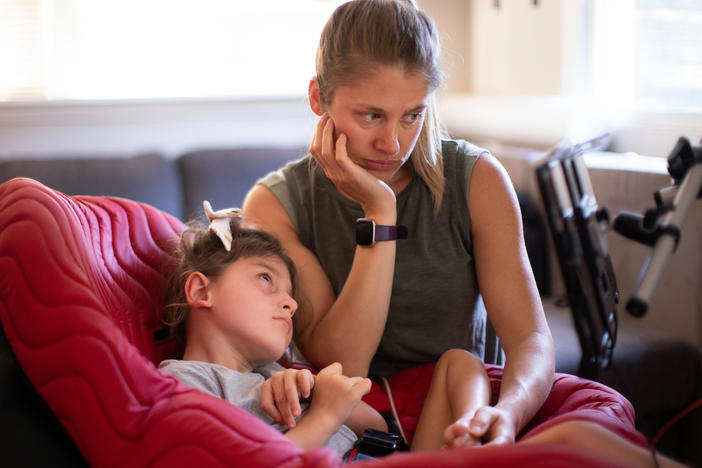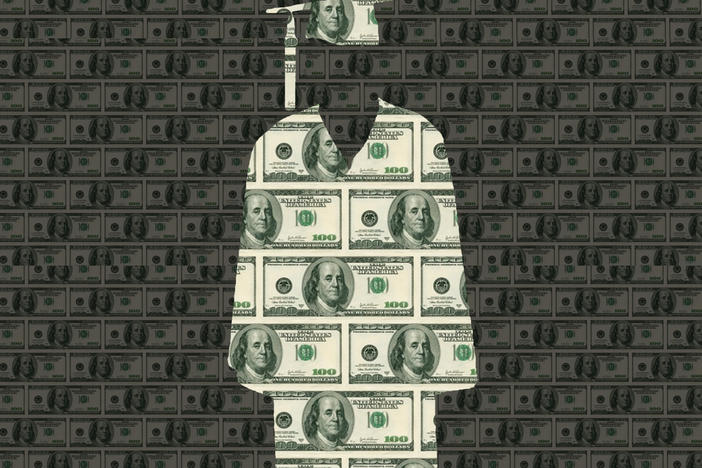Section Branding
Header Content
Exclusive: How the most affordable student loan program failed low-income borrowers
Primary Content
Income-driven repayment plans were intended to help low-income student loan borrowers, and eventually cancel their debt. New documents paint a breathtaking picture of the program's failure.
Transcript
RACHEL MARTIN, HOST:
We've got results now from an exclusive NPR investigation into federal student loans. NPR's Cory Turner has been looking into a program that offers borrowers affordable monthly payments and the promise of debt cancellation. What he found - years of mistakes and mismanagement that have made it harder to get loans erased. Cory is with us now. Good morning.
CORY TURNER, BYLINE: Hey, Rachel.
MARTIN: So first off, just explain more about these particular repayment plans.
TURNER: Yeah, they fall under this umbrella - you've probably heard the term - income-driven repayment, or IDR. IDR offers borrowers a smaller monthly payment that can change each year depending on income and family size, which means that truly low-income borrowers can end up with, you know, $5 payment or even an official $0 monthly payment. And then after 20 to 25 years, whatever's left of their student debts will be canceled.
MARTIN: So what did you find?
TURNER: So NPR obtained internal Education Department documents, including a review the department did back in 2016, right before the election, of its student loan servicers and how they were handling IDR. And it found that servicers had been making mistakes for years. For example, servicers are supposed to track IDR payments so they can obviously tell borrowers when they qualify for debt cancellation. But this review found that several servicers didn't even have IDR payment counters, so it was up to borrowers to call and ask and trigger the servicer to manually go back through two decades of records.
MARTIN: Do the servicers at least have those records of qualifying payments?
TURNER: Well, that's another problem from this report. It says that those $0 payments that we talked about were, quote, "not adequately tracked." Now, remember, for those lowest income borrowers, loan cancellation after 20 years isn't just a perk, Rachel. For many, it is a lifeline. So servicers not always giving borrowers credit for those payments means some people could be delayed on the path to forgiveness or even derailed completely. Late yesterday, I ran my findings by the top two members on the House Education Committee, and in a rare show of bipartisanship, they both used the same word, calling it a mess. Here's Democrat Bobby Scott and Republican Virginia Foxx.
BOBBY SCOTT: We knew there was a mess. We had no idea it was this bad. If you've made qualifying payments, you need to get credit for them.
VIRGINIA FOXX: The department could have avoided this mess if the department had done its job.
TURNER: And, Rachel, by its job, Foxx says the department never actually gave servicers clear, consistent guidance on how to manage IDR.
MARTIN: I imagine you've reached out to the Department of Education. What have they said?
TURNER: I have. A department spokesperson said in a statement - and I'm just going to read the whole thing here - (reading) borrowers place their trust in us to make sure these plans work the way they were intended to, and we intend to honor that trust. We are aware of historical issues with prior processes that had undermined accurate tracking of eligible payments. The current situation is unacceptable, and we are committed to addresssing those issues. We will be making operational changes to get things right moving forward, and we will fix this for the borrowers who have been harmed.
MARTIN: NPR education correspondent Cory Turner. Cory, thanks for this.
TURNER: You're welcome, Rachel. Transcript provided by NPR, Copyright NPR.
Bottom Content



